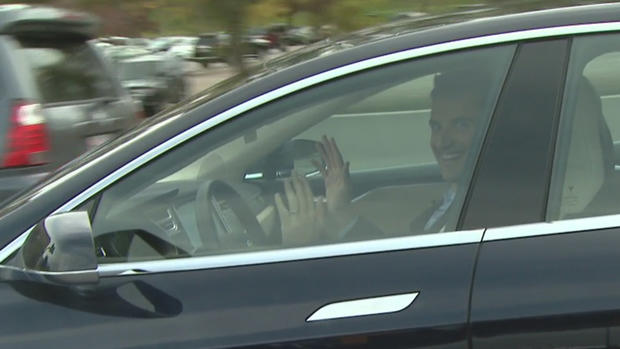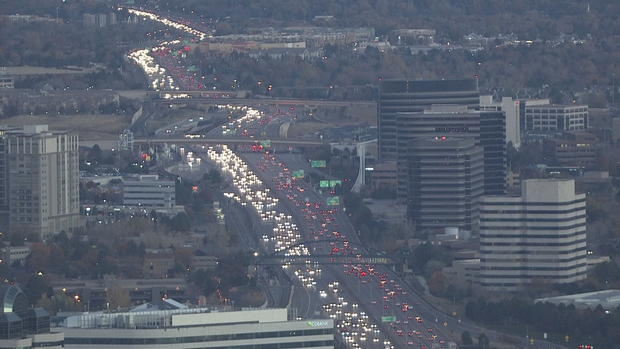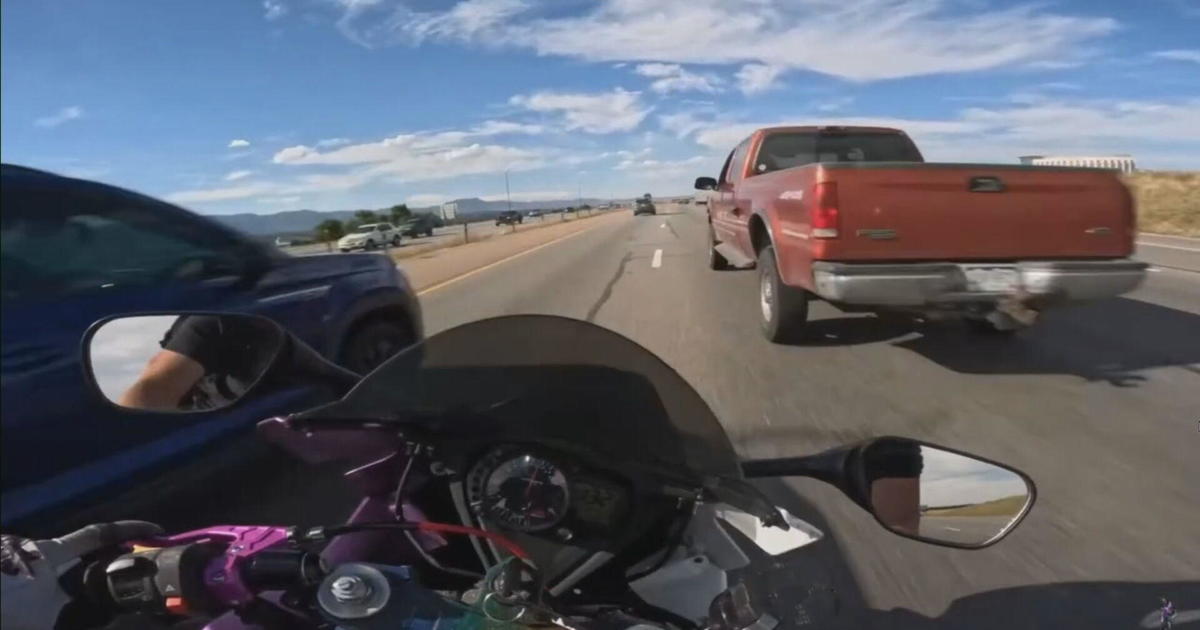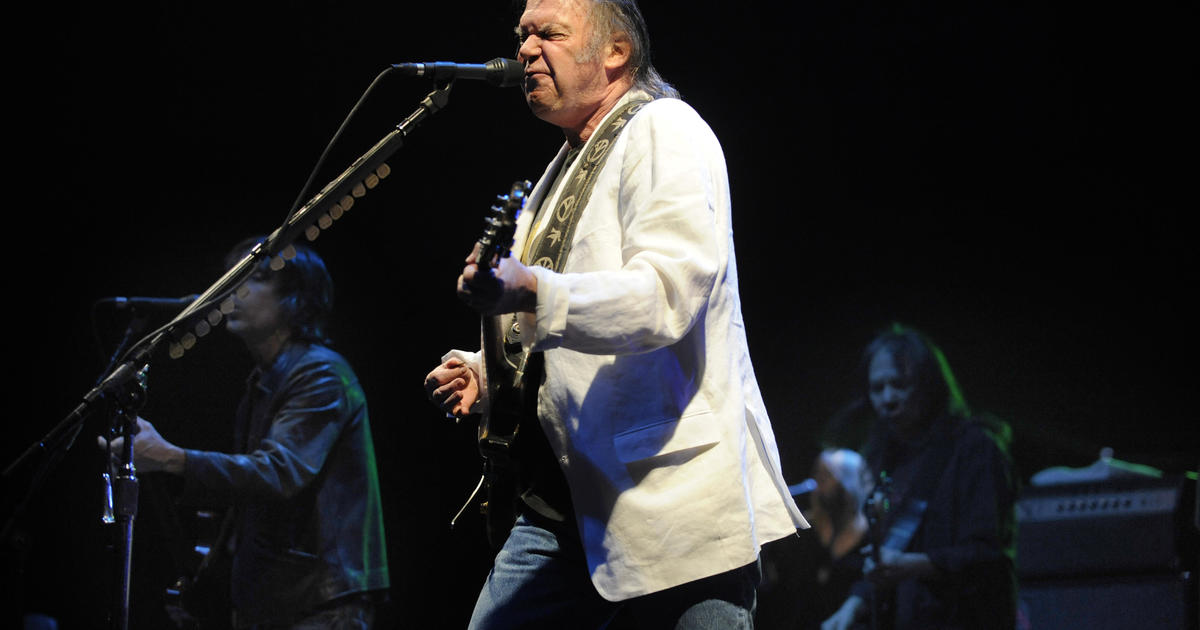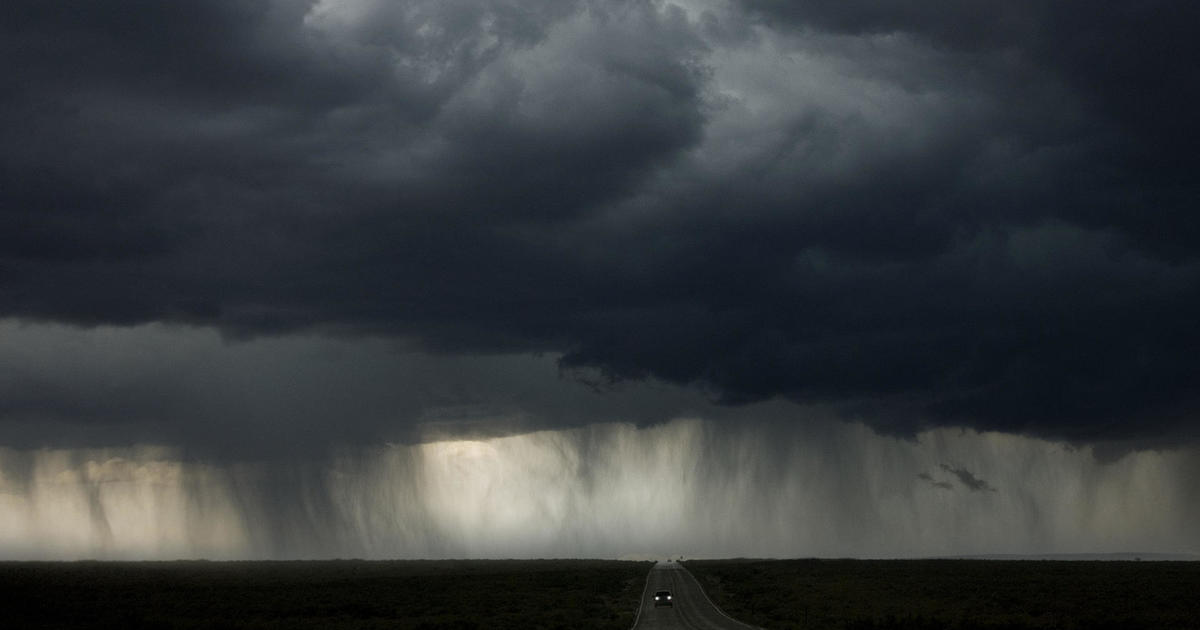Technology Could Make Big Difference In Fighting Traffic
By Alan Gionet
DENVER (CBS4)- Across the Denver metro area, on any morning and even worse during adverse weather, traffic can crawl along leaving drivers frustrated. Get used to it.
Colorado has grown by 50 percent over the past 20 years and that's just the beginning. In the next 20 years, the state is expected to grow by another 2.5 million people. So how do you fit them through the tunnels atop Loveland Pass? How do you get more vehicles on the corridor between Denver and Fort Collins? How do you squeeze more on Interstate 25 through the Tech Center at rush hour?
"We don't have the funding to maintain the system at its current level today much less improve or expand the system to meet the needs of that growth," said CDOT Multi-Modal Planning Manger Jeff Sudmeier.
Try making the highway wider in the middle of the city. Imagine the cost. The answer is trying to more out of the road surface we already have.
Enter autonomous cars.
"I have my food near the pedals just in case, my hands here," said Giuseppe Battaglioli about his Tesla as it takes over the driving.
The electric Tesla can guide the car on the highway as he sits with his hands and feet free. But he's still paying attention.
"It's great. A little bit more relaxing," said Battaglioli.
The car is equipped with sensors and cameras that help it go its job.
"You can kind of see the sensors working on the screen here. And the cameras are picking up the lines and you can actually change lanes just by putting on the turn signal… When this car passes me on the left, there's a sensor that knows it's there. It's aware of what's around," said Battaglioli.
The Tesla can do its thing on the highway but city streets are a different matter. It's not ready yet. Nor is it possible in the snow where lanes are not visible. But autonomous cars raise the possibility of really helping the growing traffic problem.
"Today you have a huge amount of unused capacity on the roadway as cars travel a good distance apart from each other through the same footprint," said Sudmeier.
In fact, look around as you drive a crowded highway and you'll see a huge amount of unused space, cars are far enough apart to be safe. The Tesla can gauge its own distance to the car in front of it. Someday that car is likely to communicate with the Tesla and the distance between cars could be closed.
"Platooning, much like if you watch a bicycle race or birds flying long distances," described Keith Wipke of the National Renewable Energy Lab. "They get in the most aerodynamic position, very close together. You don't want to be that close with your human reaction times. Computers are monitoring everything so quickly they can respond very quickly."
"I think it's working great," said Giuseppe. "I mean, it stays more centered in the lane than I can by myself if I'm driving."
Because cars stay centered better, lanes may be redrawn. That would mean more lanes on the current surface and the Tesla and many other less expensive vehicles already have crash avoidance systems. Eventually that will improve to the point where there are likely to be fewer crashes. That could mean fewer delays and fewer backups.
It's not the only answer, as Sudmeier points out. With so many more people likely to move to Colorado there will have to be a wide range of solutions. More trains and light rail. More information for drivers. Technology might have your vehicle rerouting itself. But even when traffic appears to improve, that can add to the problem.
"When you have a congested roadway you have people who have made different decisions to avoid that congestion, they've decided to take a different route or they've decided to leave an hour later. And when you add back that capacity there's an element of that that returns," said Sudmeier.
A reality that looms, just up the road.
Alan Gionet is anchor of the CBS4 Morning News and reports on a wide variety of issues and "Good Question" stories. He started at CBS4 in 1994. Follow Alan on Twitter @AlanGTV.
